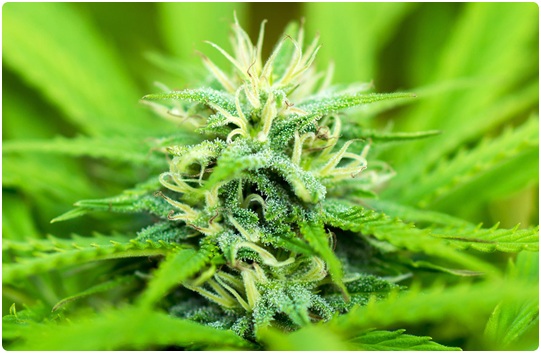6 Benefits Organic Strains Hold Over Regular Cannabis

Good soil is basically nature’s garbage. Inorganic elements like silicates mix with organic materials and the nutrients therein.
Bugs, birds, varmints, and vermin, they all leave their waste to decompose and enrich their environment. Throw in some worms, nematodes, and bacteria, and you have a source of life for growing things like flowering greens.
Left to do its thing or nudged along with some management, soil can produce a viable and enviable crop of cannabis. But, since there are no FDA approval standards for “organic cannabis, you might consider the benefits organic strains hold over regular cannabis.
What makes weed organic?
The Organic Cannabis Association (OCA) offers members training and certification in the standards they advocate for cannabis growth and packaging. Their mission states, “we believe that the issue starts literally at the root … working hand in hand with growers to advance socially responsible and environmentally sound business and cultivation practices.”
The OCA wants to see the consumers informed on product origin, quality, and production. They hope to improve consumer information and to promote sustainable agriculture. At the same, time they see a marketing appeal to a new generation of cannabis users who find an appeal in things artisan, local, and organic.
There is a conservative school that renounces any farming requiring a rake. They would have “organic” applied only to growth that has never been fertilized, sprayed, or handled by anything but hands.
On the other hand, the expanding legalization of marijuana possession and sales will drive multiplication of large cannabis farms looking for the economies that come with prepared soils, artificial fertilizers, and chemical pesticides.
Somewhere in the middle lie the earnest providers who want to provide a quality and healthy product with the advantages of the most sensible practical farming methods, like using sterilized soils, enriched with organic nutrients, natural pesticides, and purified water.
6 reasons it’s worth the effort:
- Yield: Well done, there is no reason to expect a reduced yield from organic growing. There is a learning curve, but once you can optimize your growing conditions and methods, your yields might surprise you.
The clean soils, organic fertilizers, and nutritional nutrients have improved over time. You can easily find super-soils specifically right for cannabis growth, not unlike those soils naturally engineered for roses, violets, or orchids. With some experience, you may find such selective soils require nothing additional.
And, you can always develop your own soils through trial and error mixes of blood meal, bone meal, bird droppings, desiccated insects, and worm castings.
- Potency: You need to know your strains and their ancestry. Their potency depends partly on the soils used in their development. The more data you have on the strain, the more easily you can replicate its growing environment.

The potency of the cannabis produced reflects the richness and appropriateness of its nutrients. Natural nutrients include an alphabet of organic or natural chemical components. And, you want to create the right balance of boron, calcium, cobalt, copper, iron, magnesium, molybdenum, nickel, sulfur, zinc, and more.
The right mix for the right strain will increase potency compared to the cannabis grown with ordinary methods.
- Flavor: Healthy cannabis plants produce better aroma and flavor. Healthy organically-grown cannabis produces robust terpenes and terpenoids, the source of rich and intense flavors.
These growths provide the sweet, citrus, woodsy, or skunk aromas that enrich the smoking experience.
- Environmental Impact: With richer soils and cultivation, the plant base is microbe and compost rich in natural elements. This encourages and strengthens rooting, water retention, and disease resistance.
It also produces a healthy runoff, a brew of the best virtues of the soil, free of synthetic chemicals and pesticides. Moreover, growing marijuana outdoors reduces the electrical consumption in sustained artificial lighting. According to indybay.com, it takes the equivalent of half of a ton of coal to produce eight ounces of cannabis bud raised indoors under artificial light.
- Toxicity: Used indoors or outdoors, pesticide and systemic treatments have been linked to bad health and allergies. And, they leach into the bio-sphere where they threaten the food chain based in natural soils.
For example, you can use ladybugs as a natural solution to aphids without leaving the toxic trail. By encouraging natural predators, you can avoid artificial and synthetic options. Even hydroponic solutions deserve scrutiny for artificial elements.
- Personal: Just as your home-grown tomato tastes better to you, you will enjoy the smoke resulting from your personal time and effort.
With some learning and some trial and error, you can raise your own potent and tasty weed. And, you can do it in the same garden or hothouse where you raise your organic tomatoes, onions, beans, and other herbs.
What it means to you
Organic marijuana generally offers no convenience. Until producers and farmers involved in seed to sales can certify their growing and processing behavior, customers have no assurance of quality and integrity in “organic” claims.
For those who find such claims important and even vital, the best option is to raise their own. So, it is worth reviewing the benefits organic strains hold over regular cannabis. It constitutes an effective means of self-regulation.
"Allbud.com is your comprehensive guide to recreational and medical marijuana dispensaries and strains where you could find nearby dispensaries with reviews and/or explore over 3,000 strains with photos, videos and reviews."
For more details checkout here :- https://www.allbud.com/learn/story/6-benefits-organic-strains-hold-over-regular-canna
